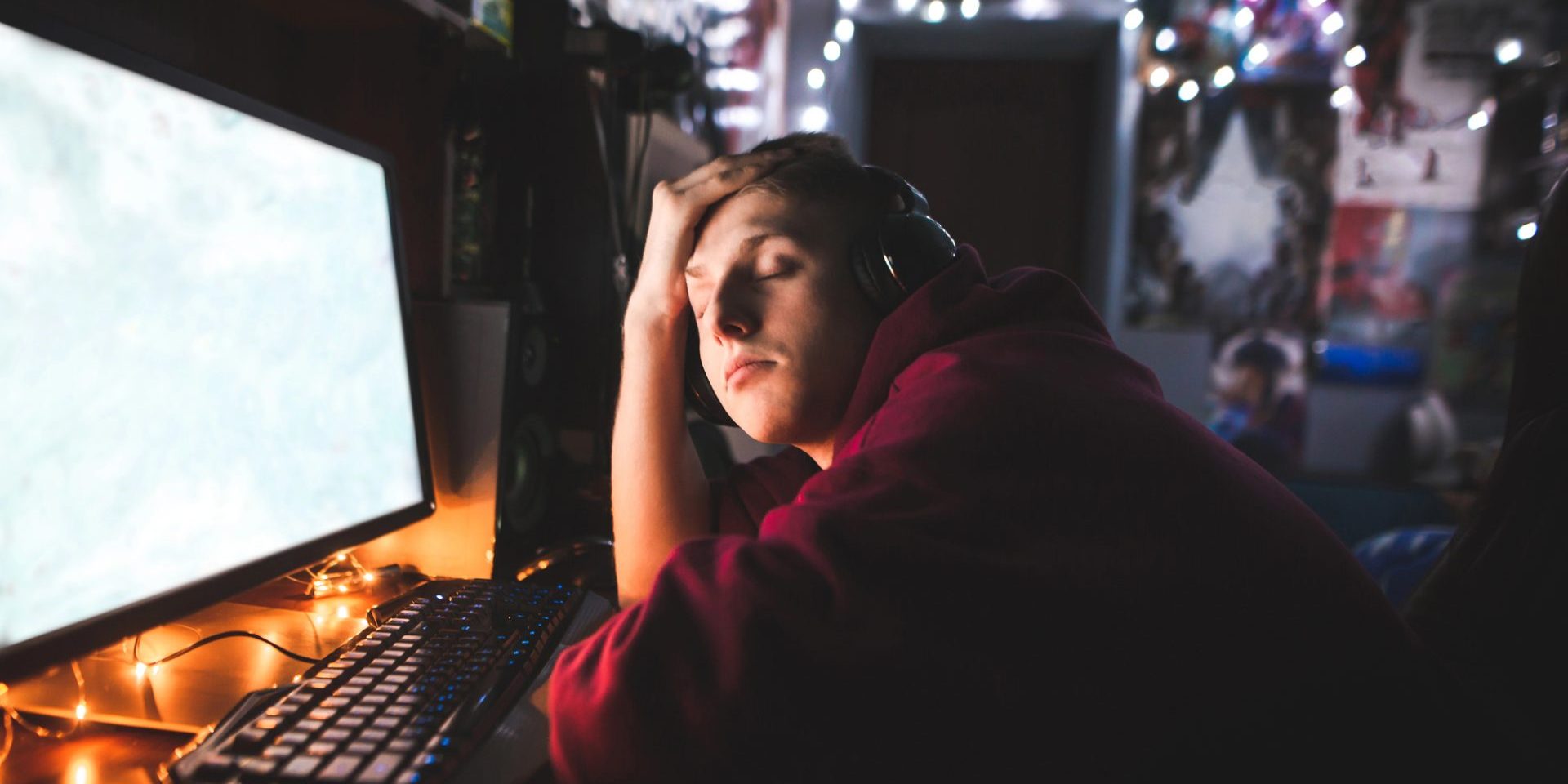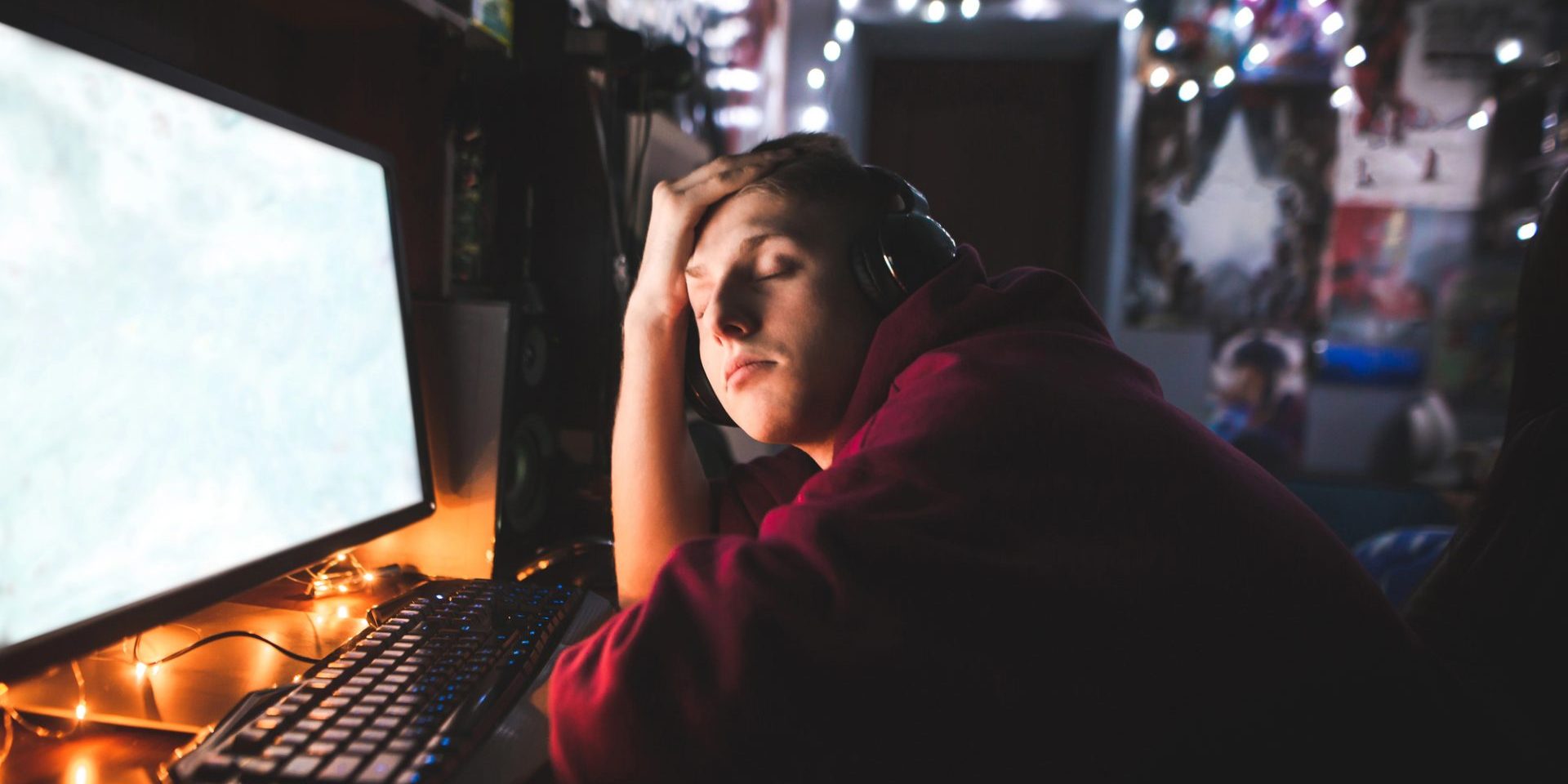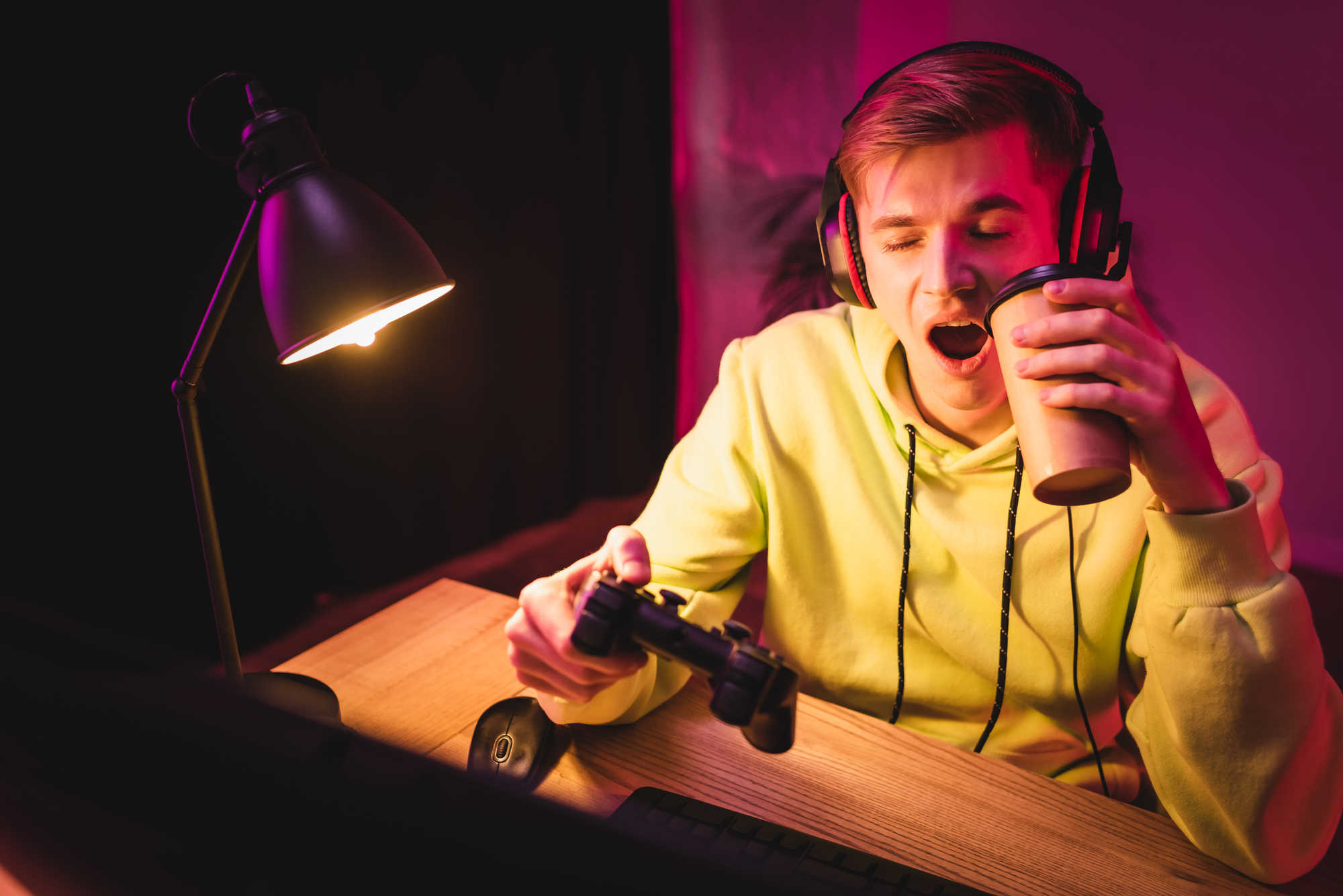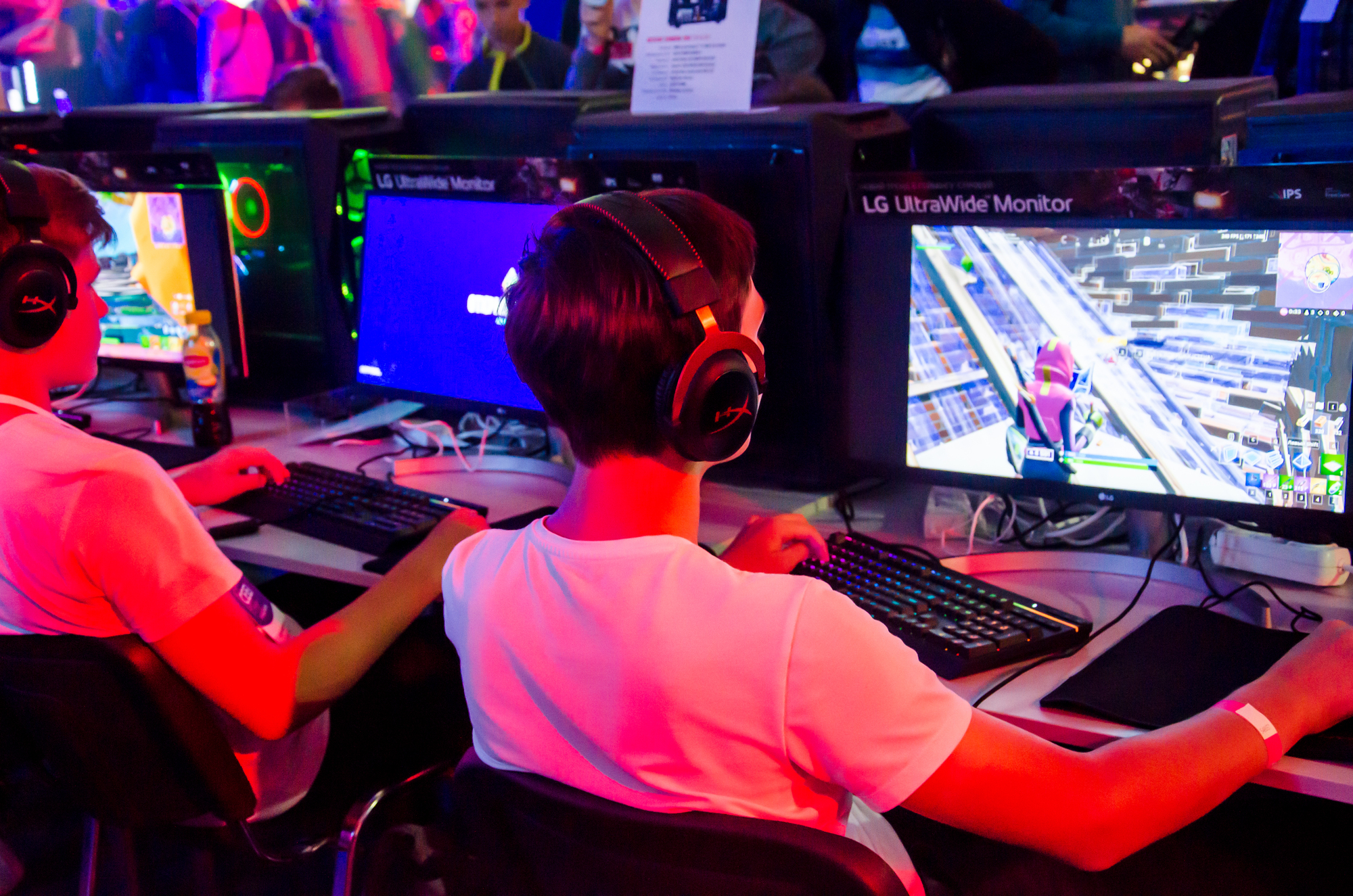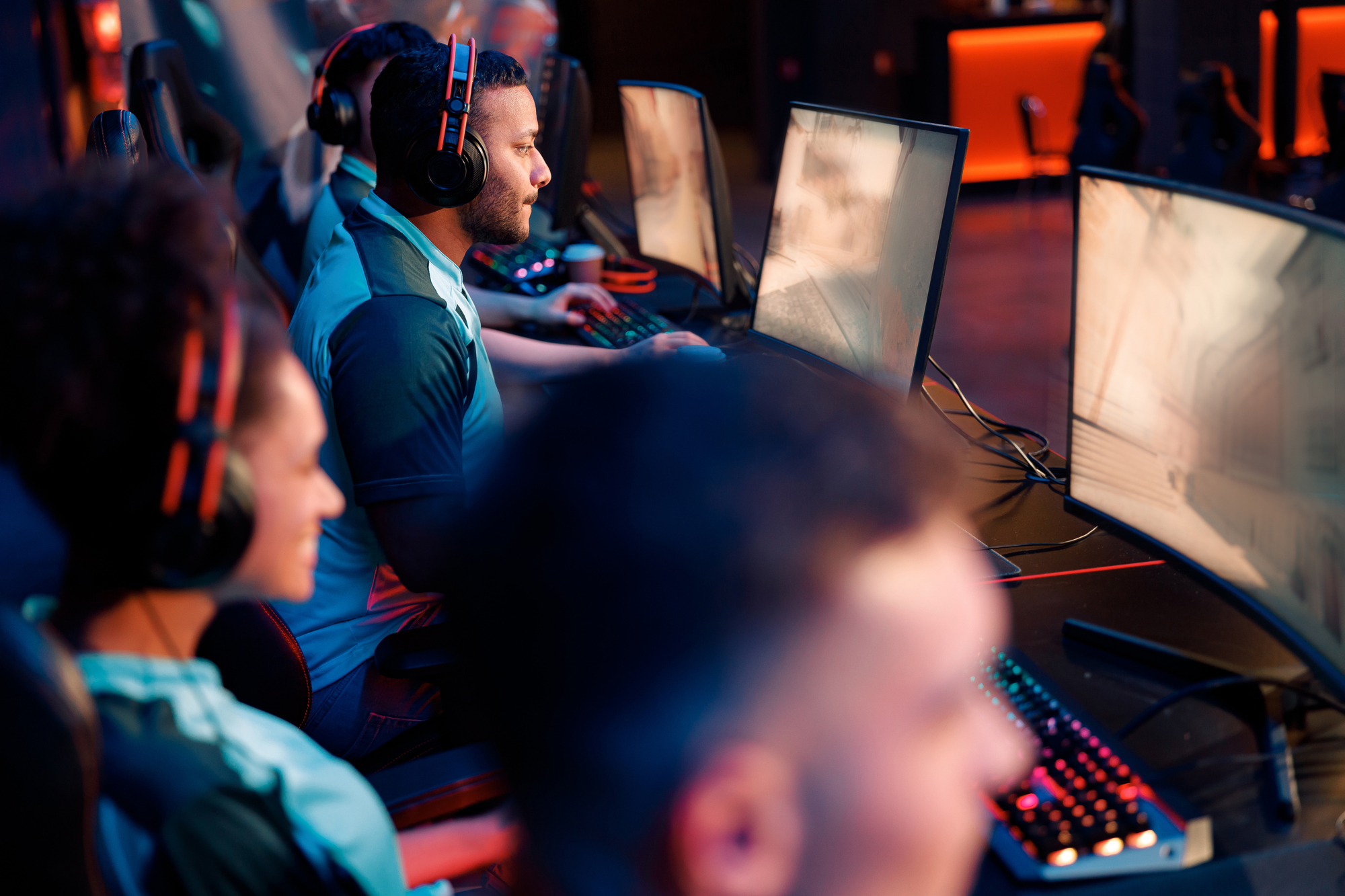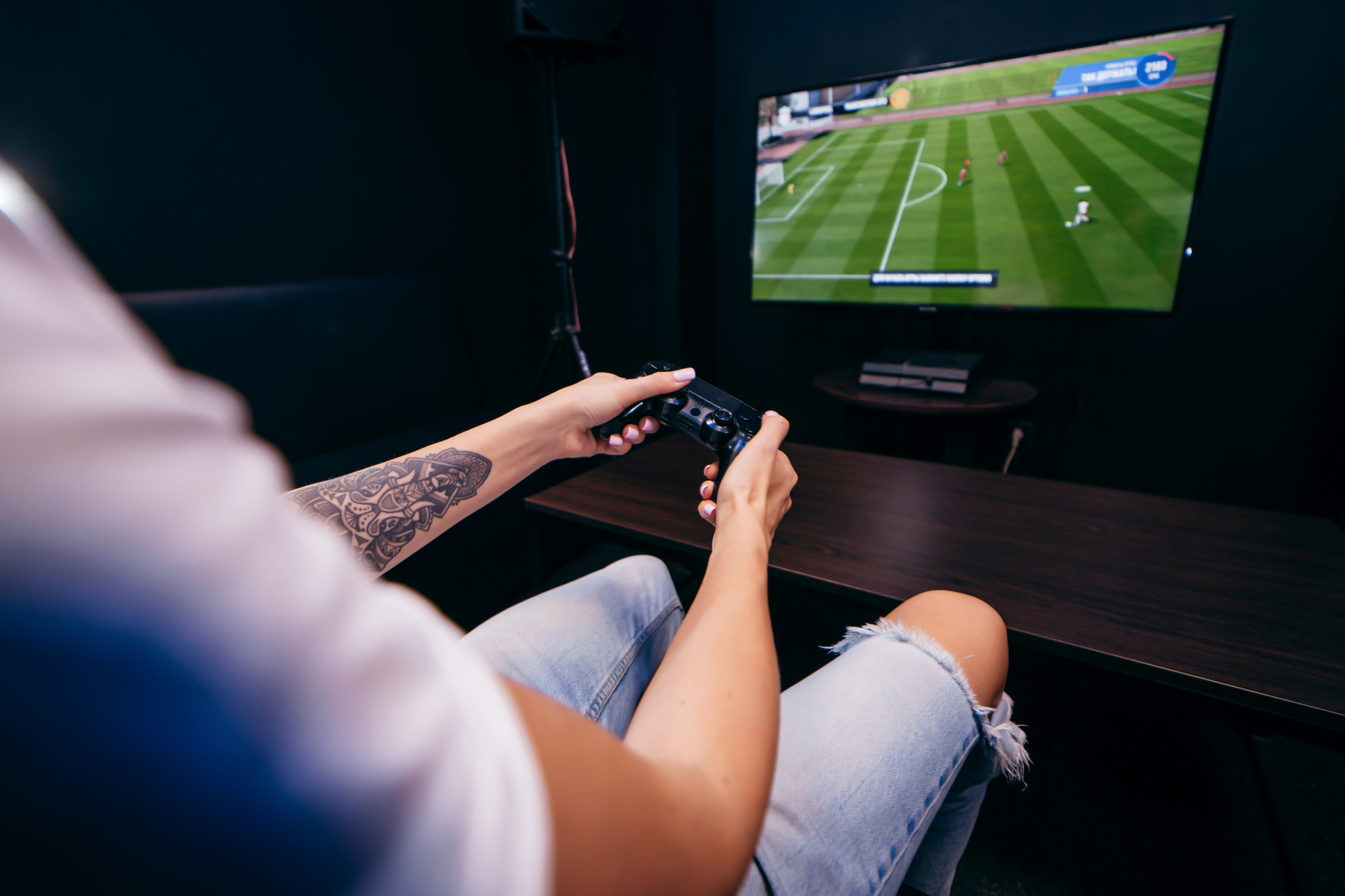Playing online games can significantly impact sleep patterns, especially for those who engage in late-night gaming sessions. The bright screens and stimulating content of video games can disrupt the body’s natural sleep-wake cycle. Research suggests that using digital devices while in bed is particularly problematic for sleep quality.
Many online games are designed to be engaging and addictive, making it difficult for players to switch off and wind down before bedtime. The competitive nature of multiplayer games can raise adrenaline levels and increase alertness, further interfering with the ability to fall asleep quickly. Additionally, the blue light emitted by screens suppresses melatonin production, the hormone responsible for regulating sleep.
Teens are especially vulnerable to the sleep-disrupting effects of online gaming. With smartphones and other devices easily accessible in the bedroom, it’s challenging for young people to resist the temptation of late-night gaming sessions. This can lead to a cycle of poor sleep habits, potentially affecting academic performance and overall well-being.
The Impact of Online Gaming on Sleep
Online gaming can significantly affect sleep patterns, duration and quality. This impact varies between adolescents and adults, with distinct consequences for each group’s sleep health.
Online Gaming and Sleep Patterns
Extended gaming sessions often lead to delayed bedtimes and reduced sleep duration. Players may lose track of time, resulting in fewer hours available for rest. Late-night gaming can disrupt the body’s natural circadian rhythm, making it harder to fall asleep even after stopping play.
Blue light emitted by screens can suppress melatonin production, the hormone responsible for regulating sleep-wake cycles. This suppression can delay sleep onset and affect overall sleep quality.
Some gamers report difficulty “switching off” mentally after intense gaming sessions. The excitement and cognitive stimulation from gaming can keep the mind active, hindering relaxation necessary for sleep.
Adolescents, Gaming, and Sleep Quality
Teenagers are particularly vulnerable to the sleep-disrupting effects of online gaming. Research shows adolescents who engage in excessive gaming are more likely to experience sleep problems.
Late-night gaming sessions can interfere with school performance due to daytime sleepiness. This can create a cycle where academic stress leads to more gaming as a coping mechanism, further worsening sleep habits.
Adolescents who play games before bed often report poorer sleep quality, including difficulties falling asleep and more frequent night-time awakenings. This can lead to shorter sleep duration and increased fatigue during the day.
Adults and Sleep Disruption From Gaming
While adults may have more control over their schedules, they are not immune to gaming-related sleep issues. Work responsibilities can compound the effects of late-night gaming, leading to chronic sleep debt.
Adults who engage in problematic gaming behaviour are more likely to experience insomnia symptoms. These can include difficulty falling asleep, staying asleep, or waking up too early.
Some adults use gaming as a way to unwind after work, but this can backfire if it delays bedtime or causes overstimulation. Finding a balance between gaming and adequate sleep is crucial for maintaining good health and work performance.
The Scientific Approach to Understanding Gaming’s Effect on Sleep
Research into gaming’s impact on sleep patterns has grown significantly. Scientists employ various methods to examine this relationship, including literature reviews, controlled experiments, and survey data analysis.
Reviewing Literature and Meta-Analyses
Researchers use systematic reviews and meta-analyses to summarise existing studies on gaming and sleep. A meta-analysis published in Google Scholar examined 34 studies with 51,901 participants. It focused on problematic gaming and sleep-related outcomes. The analysis revealed a significant link between excessive gaming and sleep issues, with an odds ratio of 2.60. This suggests that problematic gamers are more likely to experience sleep disturbances compared to non-gamers or casual players.
Another review looked at the effects of video games on daytime functioning. It included studies that used objective measures of gaming, sleep, and performance in controlled laboratory settings. This approach helps isolate the specific impacts of gaming on sleep quality and cognitive abilities.
Understanding Research Methodologies
Scientists use varied methods to study gaming’s effects on sleep. Experimental designs often involve participants playing games under controlled conditions. Researchers then measure sleep parameters using tools like polysomnography or actigraphy.
One study had participants complete two gaming sessions at home and one session without gaming. They used sleep diaries to track sleep patterns. This approach allows for comparison between gaming and non-gaming nights.
Other studies focus on specific populations. For example, a study of 21 adolescents (mean age 17.6 years) examined the impact of video gaming on sleep and next-day performance. Such targeted research helps identify age-specific effects.
Interpreting Survey Data on Sleep and Gaming
Surveys provide valuable insights into the prevalence of gaming-related sleep issues. A study on internet gaming addiction in children used questionnaires to gather data on time spent gaming and associated problems.
Results from one survey showed that 85.5% of expert gamers and 78.5% of non-expert gamers reported normal daytime sleepiness. The remaining participants reported excessive daytime sleepiness. This data helps quantify the proportion of gamers experiencing sleep-related issues.
Researchers also use surveys to explore links between gaming habits and other factors. For instance, studies have examined connections between problematic gaming, sleep problems, and issues like anxiety or alexithymia. This broader approach helps paint a more complete picture of gaming’s impact on overall well-being.
Psychological and Behavioural Aspects of Gaming Addiction
Gaming addiction can impact mental health and behaviour significantly. It often starts as a harmless hobby but can develop into a serious disorder for some individuals.
From Habit to Disorder: Defining Gaming Addiction
Gaming addiction is characterised by loss of control over gaming, prioritising gaming over other activities, and continuation despite negative consequences. The World Health Organization included gaming disorder in the International Classification of Diseases (ICD-11) in 2019.
Symptoms include:
- Preoccupation with gaming
- Withdrawal symptoms when unable to play
- Increasing time spent gaming
- Unsuccessful attempts to control gaming
- Loss of interest in other activities
- Continued gaming despite problems
Gaming addiction can lead to neglect of personal hygiene, social relationships, and work or study commitments.
Psychopathology Related to Excessive Gaming
Excessive gaming is linked to various mental health issues. Research shows correlations between problematic gaming and:
- Depression
- Anxiety
- Attention problems
- Social phobia
- Low self-esteem
Gaming may serve as an escape from negative emotions or difficult life situations. However, excessive use can worsen existing mental health problems or contribute to the development of new ones.
Sleep disturbances are common among individuals with gaming addiction. Late-night gaming sessions can disrupt normal sleep patterns, leading to daytime fatigue and mood problems.
Treatment and Management of Gaming Disorders
Treatment for gaming addiction typically involves a combination of approaches:
-
Cognitive Behavioural Therapy (CBT): Helps identify and change problematic thought patterns and behaviours related to gaming.
-
Family therapy: Addresses family dynamics that may contribute to or be affected by the addiction.
-
Support groups: Provide peer support and shared experiences.
-
Time management strategies: Help balance gaming with other activities.
-
Lifestyle changes: Encourage physical activity, healthy sleep habits, and social connections.
In severe cases, inpatient treatment programs may be necessary. Medication can be prescribed to treat co-occurring mental health conditions.
Prevention strategies focus on education about healthy gaming habits and developing alternative interests and coping skills.
Regulating Sleep and Gaming for Improved Well-Being
Balancing gaming habits with proper sleep is key to maintaining physical and mental health. A structured approach can help mitigate the negative impacts of excessive gaming on sleep patterns and overall wellness.
Designing a Healthy Sleep and Gaming Routine
Creating a balanced schedule is vital for gamers to safeguard their sleep. Set fixed gaming hours that end at least an hour before bedtime. This buffer allows the mind to wind down and prepares the body for rest. Stick to consistent sleep and wake times, even on weekends, to reinforce natural sleep-wake cycles.
Incorporate regular breaks during gaming sessions to prevent eye strain and reduce mental fatigue. Use these pauses to stretch, hydrate, or take short walks. This practice can improve focus during gameplay and ease the transition to sleep later.
Consider using apps or built-in console features that track gaming time. These tools can help maintain awareness of time spent playing and prompt breaks or shutdown at preset intervals.
The Role of Screen Time in Sleep Hygiene
The blue light emitted by gaming devices can disrupt the production of melatonin, the sleep-inducing hormone. To counter this effect, activate blue light filters on screens or wear blue light blocking glasses while gaming, especially in the evening hours.
Limit overall screen exposure before bed. This includes not just gaming but also browsing on phones or watching TV. The goal is to create a tech-free wind-down period of 30-60 minutes before sleep.
Keep gaming equipment out of the bedroom. This physical separation helps maintain the bedroom as a sleep-focused environment and reduces the temptation for late-night gaming sessions.
Improving Life Quality Beyond the Screen
Engage in regular physical activity to boost overall health and improve sleep quality. Exercise can help regulate circadian rhythms and increase the depth of sleep cycles, leading to more restorative rest.
Cultivate offline hobbies and social connections. Balancing gaming with other enjoyable activities can reduce the risk of gaming addiction and provide a more rounded lifestyle.
Practice relaxation techniques like deep breathing or meditation to manage stress and anxiety that might fuel excessive gaming or disrupt sleep. These methods can also aid in transitioning from stimulating game play to a calm state conducive to sleep.

